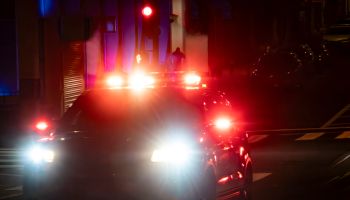“The black vote is the deciding factor in close elections,” Jackson told BlackAmericaWeb.com. “If you take away the votes of 10 percent of the people who are black, brown, poor or on fixed incomes, you can change the outcome of an election.”
The Department of Justice, Jackson said, is the only agency that can intervene on behalf of potentially disenfranchised voters and prevent the gains of the 1960s from being stripped away.
The requirement for state-issued photo identification at polling places will mean that millions may not vote in the 2012 election, because they don’t have licenses or birth certificates and cannot afford to get them, he said.
According to Jackson, there are 5.5 million blacks in America who are of legal driving age but do not have a driver’s license.
Among the states considering photo identification requirements are Ohio, Wisconsin, Kansas, Pennsylvania, Montana, Tennessee, North Carolina, South Carolina and Texas.
Barbara R. Arnwine, executive director for the Lawyers Committee for Civil Rights, says that the time and resources needed to acquire the identification as well as lack of easy access to the needed underlying documents, such as a certified birth certificate and other forms of documentation, are particularly burdensome on minority, low-income, elderly, disabled and student voters.
According to the Lawyers Committee, a 2006 nationwide study of voting-age citizens found that 78 percent of African-American males aged 18 to 24 in Wisconsin lacked a valid driver’s license.
Also, 24 percent of black households are without automobiles, compared to 7 percent of white households. Consistently, studies estimate that more than 20 million individuals lack a government-issued photo ID.
But proponents of photo ID laws, such as recently announced Republican presidential nominee candidate Herman Cain, say that the laws are not discriminatory.
Cain, a black man who is the former CEO of Godfather’s Pizza, said civil rights groups encourage voter fraud by opposing voter identification bills, according to an article published on Politico.com.
“The people who fight against having some type of statewide voter ID with the picture are the very ones who know that all of the fraud is going on,” Cain said. “We can’t get on an airplane without showing the proper ID. Why in the world shouldn’t we be able to show the proper ID in order to vote for somebody who is going to make laws that are gonna impact the people? It doesn’t make good common sense.”
Jackson, however, disagrees, and points to the economic barriers in acquiring photo identification.
These barriers are reminiscent of discriminatory barriers that were struck down by the Civil Rights of Act of 1965, he said. The only way to prevent the law changes from hurting black voters, said Jackson, is to get the Department of Justice to intervene.
Jackson, founder of the Chicago-based Rainbow PUSH Coalition and a longtime civil rights advocate, said he recently organized a group of civil rights leaders to present concerns to DOJ officials.
During the Rainbow PUSH annual meeting in June, Jackson said he would lead activists from across the country in addressing voting rights issues and what he calls an assault on labor unions.
“People across the country are fighting the same agenda. It’s all from the same playbook,” Jackson said.
“The Voting Rights Act was not just about Selma. It had national impact. Now there is a national movement to undermine the impact of the black vote,” he said.
“If you put barriers in place …..
to voting, if you are laying teachers off en masse, if you are changing the make up of districts, then you are watering down the black vote,” Jackson said. “All of what we fought for is now on the chopping block. The Department of Justice must intervene.”















